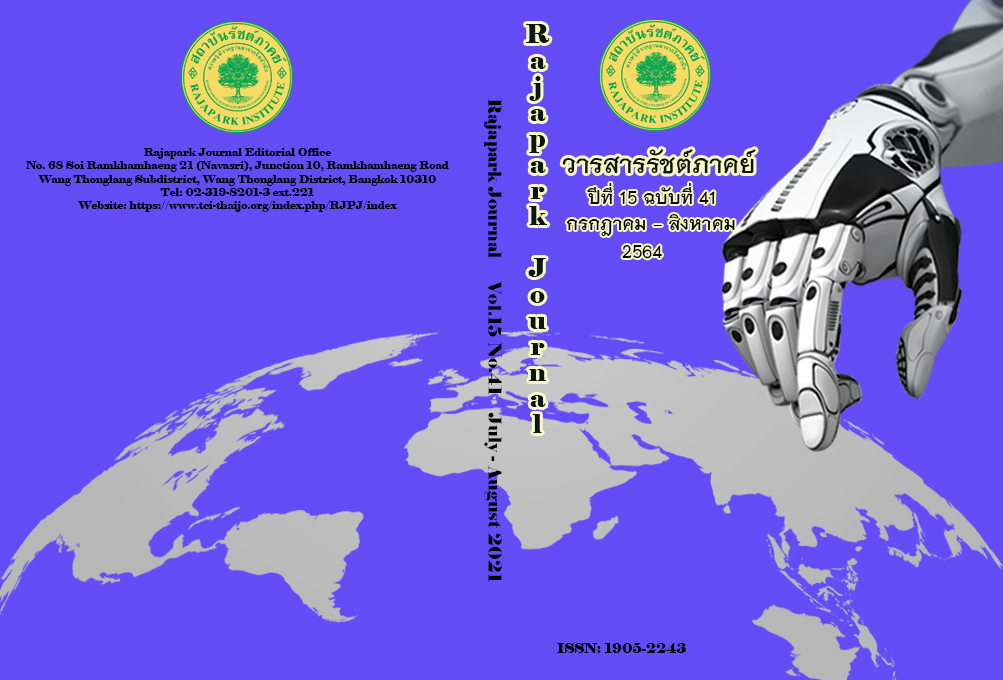Legal Measures for the Eco-Friendly Products and Services Procurement of Thailand’s Government Sector
Main Article Content
Abstract
The purposes of this study were as follows: 1) to study the background, importance of eco-friendly products, and services procurement; 2) to study foreign legal measures for the eco-friendly products and services procurement compared with Thailand; 3) to study the legal problems of Thailand in the procurement of environmental-friendly goods and services in accordance to the Public Procurement and Supplies Administration Act B.E. 2560 (2017); and 4) to purpose the guidelines for Thai law amendment related to international standards. This research was a qualitative research from the study of literature including articles, journals, and information from electronic media both domestic and abroad. The results revealed that at present, Thailand has the Government Procurement and Supplies Management Act B.E. 2560 (2017) with the objectives of transparent and fair competition. However, the study found the objectives of the Procurement and the government supplies administration B.E. 2560 (2017) were not focused on eco-friendly procurement. There is lacked concrete legal provisions to promote constructive practices, therefore, result in environmental impact as well as barriers to international trade. Therefore, it is deemed appropriate to amend the Procurement and the government supplies administration B.E. 2560 (2017). In order to protect the environment of Thailand at International standard.
Article Details
Views and opinions appearing in the Journal it is the responsibility of the author of the article, and does not constitute the view and responsibility of the editorial team.
References
Australian Government Department of the Environment and Energy. (2020). Sustainable Procurement Guide. Retrieved April 4, 2020, form https://www.environment.gov.au/protection/waste/ publications/sustainable-procurement-guide-2020
Bianchini Teixeira, C. R. et al. (2018). The Contribution of Green Logistics and Sustainable Purchasing for Green Supply Chain Management. Retrieved April 4, 2020, form http://www.ijmp.jor.br/index.php/ijmp/article/view/789/917
Czarnezki, J. J. (2019). Green Public Procurement Legal Instruments for Promoting Environmental Interests in the United States and European Union. Doctoral dissertation. Uppsala University, Sweden.
European Commission. (2008). EU GPP Criteria. Retrieved December 8, 2020, form https://ec.europa.eu/environment/gpp/eu_gpp_criteria_en.htm
European Commission. (2016). Buying green! A handbook on Green Public Procurement (3rd ed.). Retrieved May 2, 2020, form https://ec.europa.eu/environment/gpp/pdf/Buying-Green-Handbook-3rd-Edition.pdf
European Union. (2014). Directive 2014/24/EU of the European Parliament and of the Council. Official Journal of the European Union, L 94(57), 64-242. ELI: http://data.europa.eu/eli/dir/2014/24/oj
Green Purchasing Network. (1996). Green Purchasing. Retrieved December 15, 2020, form https://www.gpn.jp/guideline/
Japan for Sustainability. (2002). Green Purchasing and Green Procurement in Motion. Retrieved December 16, 2020, form https://www.japanfs.org/en/news/archives/news_id027751.html
Photisai, A. (2017). Measures and how to Prevent Problems Illegal Fishing in Thailand and the Main Principles of IUU Fishing. Junniti Journal, 14(4), 149-161.
Pollution Control Department. (2020). Green Procurement. Retrieved March 18, 2020, form https://www.pcd.go.th/greenoff/-green-procurement/
Shahriarpour, M., & Tabriz, A. A. (2017). The Importance of Green Supply Chain Management and Its Role in Marketing Management. International Journal of Economics and Financial Issues, 7(3), 265-269.


